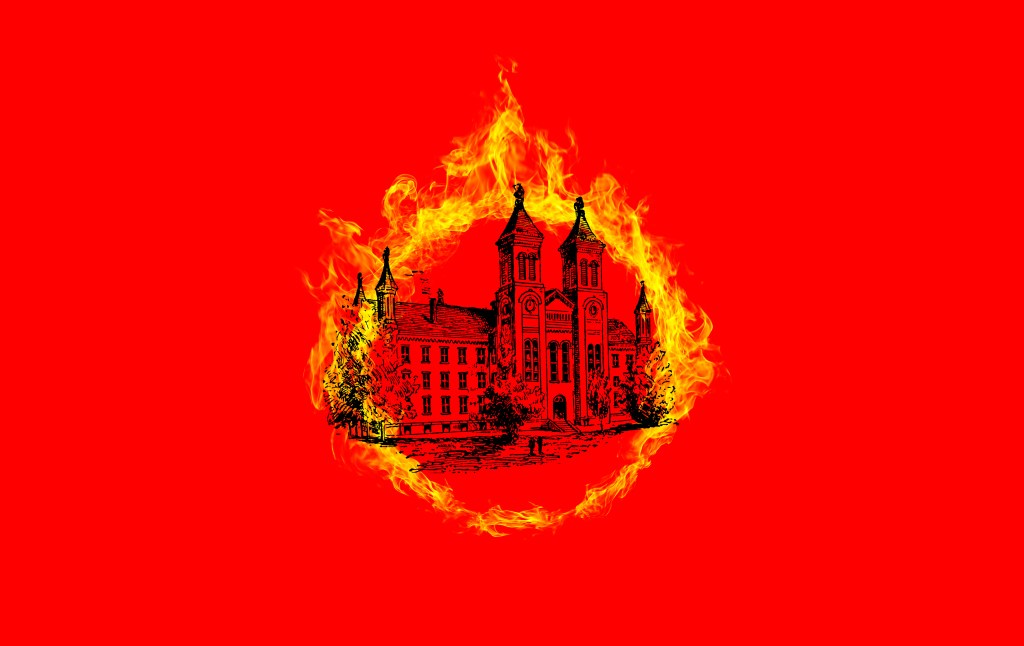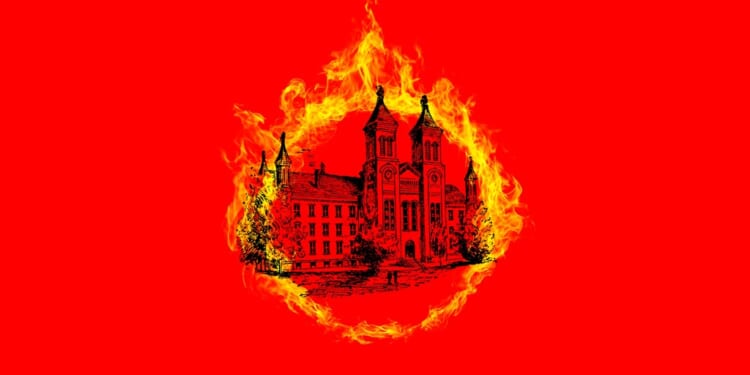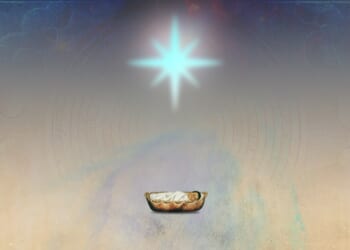
In 2008, the academic job market crashed and never recovered. I know this for a very particular reason: that year I received my Ph.D. in classics from Princeton University, but most of the jobs had evaporated in the recession. Every year since, the number of jobs in the field has only grown smaller, paired most years by the announcements of closures of classics departments—and those in other humanities fields—in universities across the U.S. and the U.K.
For most people, this news is an unfortunate development, but not one to which they devote much thought. And yet, for some, this has been a life-defining tragedy. Years ago, an English professor I knew wondered, in self-reflective distress: Without academic jobs, what would happen to those who cannot imagine anything but a life spent living entirely in their heads? Enough others are pondering this question to continue filling up Ph.D. programs in the humanities each year, even as chances of employment in traditional academia now are lower than winning the lottery.
The author R.F. Kuang has clearly been thinking about this question, as she pursues a Ph.D. in East Asian Languages and Literatures at Yale University. In case you’re wondering, there are even fewer jobs in her field than in classics. But Kuang has also done something unusual with her remarkable academic training: She has written “dark academia” fantasy novels, reflecting on the academia we know, but setting the stories in a world where magic is real, readily present, and incredibly alluring and dangerous all at once. The effect is something akin to Susanna Clarke’s Jonathan Strange & Mr Norrell, but set in British universities.
In Kuang’s previous novel, the bestseller Babel, the protagonists are brilliant magic and linguistics students at Oxford, trying to survive and thrive against all odds while also trying to reform an international system they find systemically unjust. Spoiler alert: They fail, but Kuang doesn’t. The novel is superb in its plot twists, character development, and the casually simple use of minutiae of different disciplines that Kuang herself has managed to master along her academic journey. Her characters are convincing academic geniuses—those people who are all book sense, but no common sense.
Her newest novel, Katabasis, takes a similar approach but with a different premise: Imagine you’re a graduate student on the verge of finishing a dissertation and you attempt to snag that unicorn—the tenure-track job. What would you do if your world-renowned dissertation adviser, the one whose letter of recommendation would have been your ticket to getting said job, suddenly died? For the two protagonists of this novel, Cambridge graduate students Alice Law and Peter Murdoch, the answer is obvious: They must go to hell—literally, not figuratively—to bring their adviser back. For what else could they possibly do with their lives? (A sarcastic discursus on alt-academia early in the novel summarizes other options that people commonly encourage desperate aspiring academics to pursue. The protagonists are clearly not interested—much like many real graduate students.)
The book’s title, Katabasis, is the Greek term for descent into hell. But the Greeks aren’t the only ones who told tales of heroes who journeyed to the underworld while still alive. The tradition of katabasis includes heroes including Gilgamesh, Odysseus, Orpheus, Aeneas, Dante, and many more. Some traveled to find immortality for themselves, others to get answers from the dead, and others yet, to bring someone back. Kuang’s characters treat these myths and literary tales as research, mining them for information for their journey.
Except, it turns out that hell is, first and foremost, a research university, populated by stressed-out, dysfunctional students and even more stressed-out and dysfunctional professors. In traversing the eight circles of hell, the protagonists begin in Pride—a research library, where one can spend an eternity researching “the meaning of the good.” In delight, the library’s dean explains to Peter and Alice: “There are no bathroom facilities or kitchens. No one needs to sleep or eat. They are freed to engage full-time in their work.”
They then proceed to Desire, the place for those driven by their extreme lust and other longings and desires, all twisted, of course (like the shade who is incessantly sniffing the inside of a book). It turns out to be a typical university student center, a reminder of the inadequacy of earthly longings compared to cerebral joys. It is a place more appealing to undergraduates than graduate students. In describing such fixtures of university life that make up hell, Kuang intersperses descriptions of many a graduate student experience, like the regular encounter with extreme stress and despair that we get through Alice’s inner thoughts: “Fortunately graduate school had prepared her for this, the constant managing of despair. Everything was always falling apart; nothing in lab went right; you couldn’t afford groceries, your cottage had a rat problem, all your instructors hated you, you were always one step away from flushing all your life’s work down the toilet. You shoved it to the side of your mind and went to sleep and deferred it all to tomorrow when your brain again functioned well enough to pretend.”
Academics love the life of the mind and prioritize their research above all else. But is this good for them? Alice and Peter find themselves confronted with this question over the course of their quest. Their journey brings them to think, with more critical eyes, about their experiences in graduate school and especially with their celebrated adviser. Their answer to the above question turns out to be key to their ability to survive the underworld, whereas many others stay trapped forever—and enjoy it. For instance, in Dis, the capital city of the dead, dedicated researchers spend an eternity working on their dissertations, workshopping them in groups, learning all about productivity strategies and how to write better and faster (Is Cal Newport in Kuang’s hell?), hiring minor gods for copyediting, fretting over the number of spaces one must include after each period, and then submitting into a one-way deposit slot, only to spend another eternity to hear if they passed—even as everyone knows that no one ever does.
It is these idols of academia that bring Alice and Peter to hell in the first place. But it is their realization that people are not just minds, but also souls and bodies, that allows them to have a chance of surviving it—although you need to read for yourself to find out if they do. At any rate, in the process, Kuang pushes readers who love the life of the mind to consider: What is life really for?
Perhaps life is for joys other than research, the characters come to realize. Yes, universities are good. But obsession can warp even very good things, and academia too easily lends itself to such self-destructive idolatry. At one point, Peter asks Elspeth, the ghost of a magic graduate student who committed suicide decades earlier, what she might do if she could ever return to the world above. Elspeth, after all, had made it clear that she is done with research. What else might she have to live for? She responds, “I’m going to sit outside. I’m going to have a cup of tea, Assam, with lots of milk and a swirl of honey. And a cinnamon bun. With raisins.”

















